In the dynamic world of marketing and branding, the line between art and commerce often blurs, with the power of storytelling playing a pivotal role. Cinema, with its inherent ability to weave compelling narratives, offers a unique lens to explore the multifaceted dimensions of marketing and branding success. From the birth of innovative advertising campaigns to the ethical dilemmas faced by marketers, marketing films have consistently mirrored the triumphs and tribulations of the industry and offering both inspiration and cautionary tales.
Marketing and branding are at the heart of business success, driving consumer engagement and loyalty. The strategic orchestration of brand identity, combined with effective communication, can catapult a product from obscurity to global recognition. However, behind the glossy advertisements and catchy slogans lies a world of intense creativity, rigorous analysis, and sometimes controversial practices. It is this intricate dance between art and science, ethics and profit, that makes marketing such a captivating subject for filmmakers.
One of the most fascinating aspects of marketing portrayed in films is the genesis of revolutionary ideas that change the industry landscape. Cinematic narratives often provide a behind-the-scenes look at the creation of tech giants and other major brands. These stories highlight how visionary leadership, combined with innovative marketing strategies, can create not just products, but cultural phenomena. They delve into the minds of industry pioneers, showcasing their relentless pursuit of excellence and their ability to foresee and shape consumer desires.
Other films pay homage to the creative brilliance behind some of the most iconic advertising campaigns. These portrayals capture the essence of the advertising world, depicting the strategic and often cutthroat environment where legendary campaigns are born. They celebrate the creative geniuses who redefine advertising with their groundbreaking ideas, emphasizing the role of creativity and innovation in capturing public imagination and building lasting brand identities.
The ethical dimensions of marketing are another compelling theme explored in cinema. Some films present a satirical yet incisive critique of the industry’s darker side, where persuasion borders on manipulation. These narratives follow the efforts of lobbyists and spin doctors as they manipulate public opinion or orchestrate grand deceptions. Such films challenge viewers to consider the moral implications of marketing practices and the fine line between influence and deception.
Moreover, the personal journeys of entrepreneurs and marketers offer a human perspective on the industry. These stories highlight the resilience, innovation, and strategic thinking required to succeed in the competitive world of business. The relentless pursuit of dreams and the aggressive expansion of business empires underscore the impact of effective branding and marketing on achieving commercial success.
Films about marketing and branding provide a rich tapestry of narratives that reflect the industry’s complexity and its profound impact on society. They offer insights into the creative process, the ethical challenges, and the strategic brilliance that define the field. By examining these cinematic portrayals, we gain a deeper understanding of how marketing shapes our world and the stories behind some of the most influential brands in history. Through the lens of cinema, the world of marketing and branding comes alive, offering valuable lessons and reflections on the power of influence and the art of persuasion
1. The Social Network (2010)

David Fincher’s “The Social Network” chronicles the founding of Facebook, focusing on the complexities of creating and branding a social media behemoth. The film dives into the ambitious mind of Mark Zuckerberg, whose drive to differentiate his product from others leads to innovative marketing tactics that revolutionize how people connect online. The film shows the pivotal role of branding in the platform’s success, from the initial exclusivity to the eventual global outreach. It also highlights the power of social networks in shaping digital marketing landscapes and their influence on modern communication and business strategies.
3. The Founder (2016)
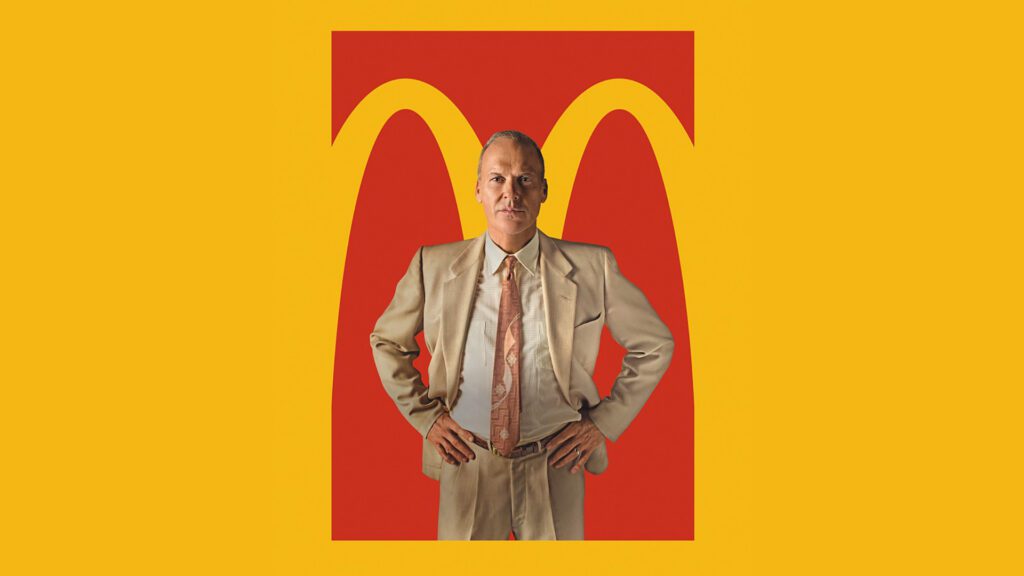
“The Founder” tells the story of Ray Kroc, a struggling salesman who transforms McDonald’s from a small, family-owned restaurant into a fast-food empire. Kroc’s aggressive marketing strategies and relentless pursuit of expansion demonstrate the impact of branding and franchising in building a global brand. The film emphasizes the importance of consistency, efficiency, and innovation in marketing a brand, highlighting the business acumen needed to turn a local business into an international powerhouse.
4. Joy (2015)

“Joy” is a biographical film about Joy Mangano, an inventor and entrepreneur who creates the Miracle Mop and builds a business empire. The film showcases Joy’s journey from a struggling single mother to a successful businesswoman, emphasizing her innovative approach to product development and marketing. It highlights the challenges of bringing a new product to market, the importance of perseverance, and the power of television marketing, particularly through home shopping networks.
5.Steve Jobs (2015)

Directed by Danny Boyle, “Steve Jobs” presents a behind-the-scenes look at the Apple co-founder’s life, focusing on three key product launches. The film delves into Jobs’ marketing genius, illustrating how he turned product launches into highly anticipated events and Apple into a lifestyle brand. It showcases his emphasis on design, user experience, and creating an emotional connection with consumers, highlighting the role of visionary leadership in successful branding and marketing.
6. The Greatest Movie Ever Sold (2011)
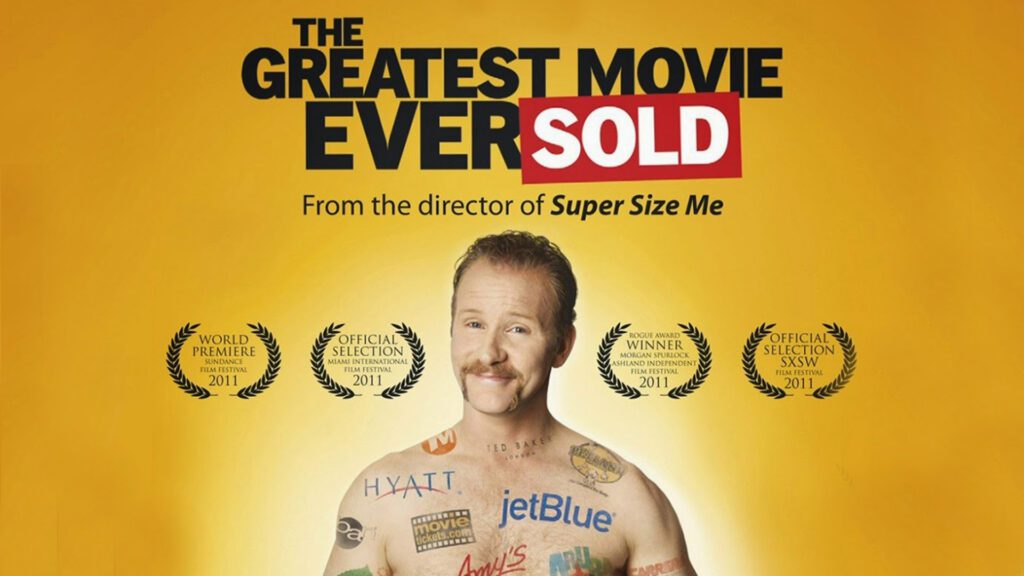
Morgan Spurlock’s documentary “The Greatest Movie Ever Sold” explores the world of product placement, marketing, and advertising. In a meta twist, the film itself is financed through product placements, offering an insider’s view of how brands seek to integrate into entertainment. Spurlock’s humorous yet critical approach reveals the pervasive nature of branding in media and the complex relationships between filmmakers and advertisers. The documentary provides a unique perspective on the strategies brands use to capture audience attention in an increasingly competitive market.
7. Jobs (2013)

“Jobs,” starring Ashton Kutcher, chronicles the life of Steve Jobs from his early days as a college dropout to his rise as a tech visionary. The film emphasizes Jobs’ role in revolutionizing the technology industry and his innovative marketing strategies that positioned Apple products as must-have items. It highlights key moments such as the introduction of the iPod, iPhone, and iPad, showcasing how Jobs’ insistence on sleek design and user-friendly interfaces helped create a strong brand identity and loyal customer base.
8. Moneyball (2011)

While primarily a sports drama, “Moneyball” offers valuable insights into data-driven decision-making and its application in various fields, including marketing. The film follows Billy Beane, the general manager of the Oakland Athletics, who uses statistical analysis to build a competitive baseball team on a limited budget. This analytical approach to team-building parallels modern marketing strategies that rely on data and metrics to target consumers more effectively and optimize campaigns.
9. Thank You for Smoking (2005)
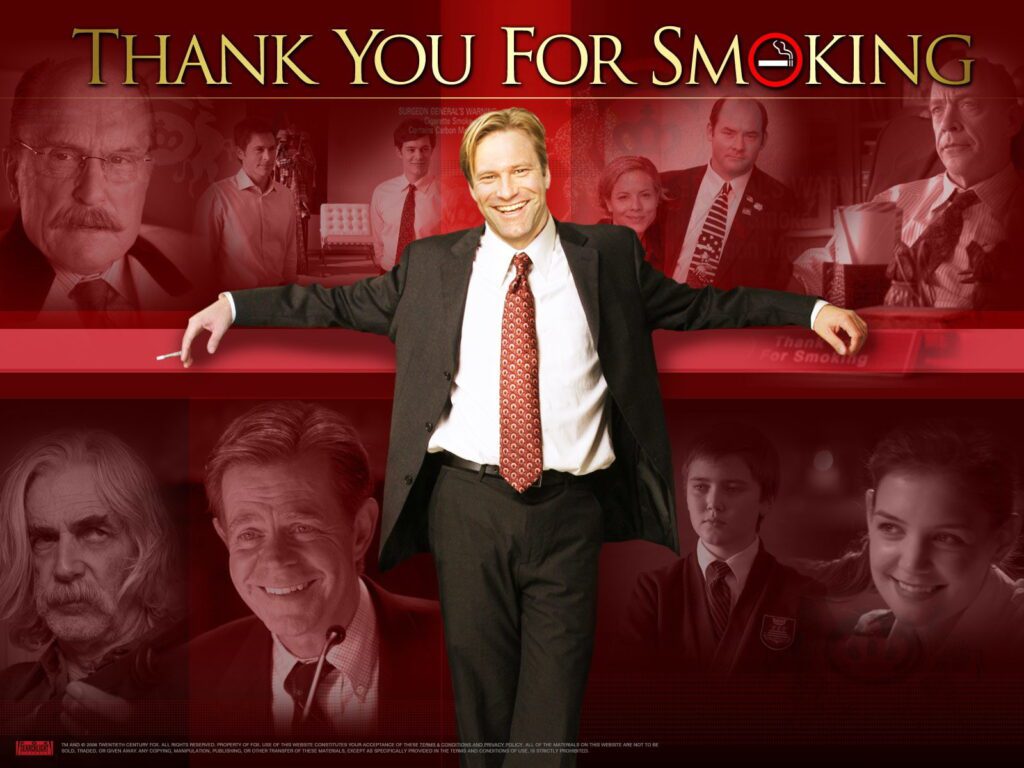
“Thank You for Smoking” is a satirical comedy that follows Nick Naylor, a lobbyist for the tobacco industry. The film delves into the art of persuasion and spin, showcasing Naylor’s ability to manipulate public opinion and navigate the ethical dilemmas of his profession. It provides a darkly comedic look at the tactics used by marketers to defend controversial products and influence consumer behavior, highlighting the moral complexities inherent in the field of advertising.
10. The Joneses (2009)

“The Joneses” presents a unique take on stealth marketing through the story of a seemingly perfect family who moves into a wealthy neighborhood. Unbeknownst to their neighbors, the Joneses are a team of marketers employed to promote luxury goods by creating a desirable lifestyle. The film explores the impact of aspirational marketing and the lengths to which companies will go to embed their products into consumers’ lives, raising questions about authenticity and the ethics of such practices.
11. Crazy People (1990)
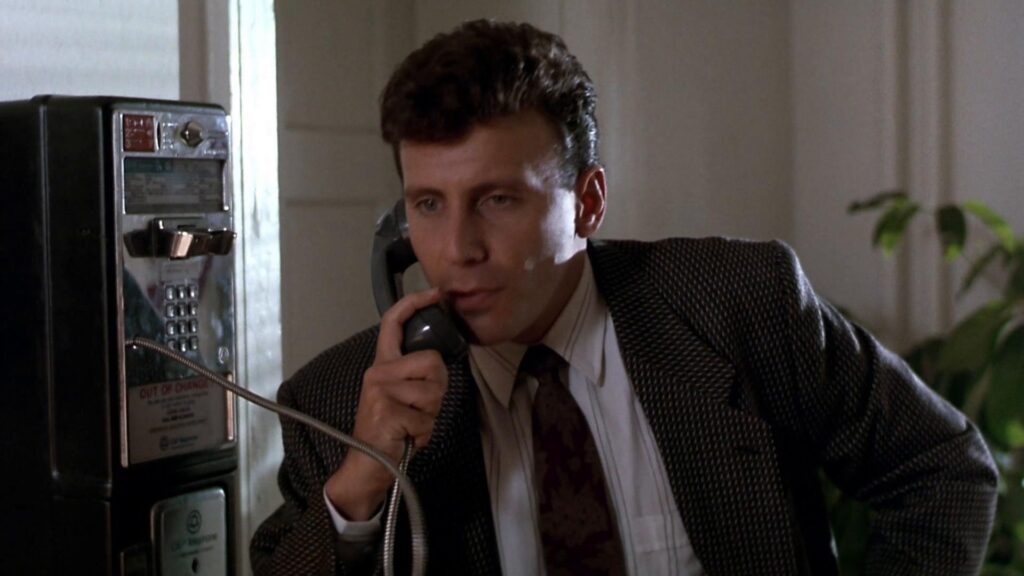
“Crazy People” is a comedy about a disillusioned advertising executive who creates brutally honest ad campaigns and is subsequently sent to a mental institution. With the help of fellow patients, he continues to produce these truthful ads, which unexpectedly become a hit. The film offers a humorous critique of the advertising industry’s penchant for exaggeration and deception, suggesting that honesty and authenticity can resonate powerfully with consumers and disrupt traditional marketing paradigms.
12. Art & Copy (2009)
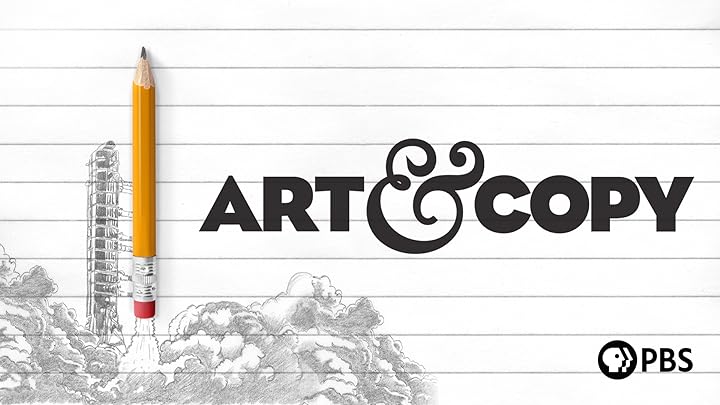
Image Source : https://www.amazon.com/Art-Copy-Jake-Shimabukuro/dp/B00E9564S4
“Art & Copy” is a documentary that celebrates the creative minds behind some of the most iconic advertising campaigns. It features interviews with legendary ad executives who revolutionized the industry with their innovative ideas and memorable slogans. The film underscores the importance of creativity and storytelling in marketing, illustrating how compelling narratives and bold concepts can capture the public’s imagination and build enduring brand identities.
13. What Women Want (2000)

In “What Women Want,” a chauvinistic advertising executive gains the ability to hear women’s thoughts after a freak accident. This newfound power allows him to craft highly effective ad campaigns that resonate with female consumers. The film explores themes of empathy and understanding in marketing, highlighting the importance of knowing one’s audience and addressing their needs and desires. It also touches on gender dynamics in the workplace and the evolving role of women in advertising.
14. 99 Francs (2007)

Based on the novel by Frédéric Beigbeder, “99 Francs” is a satirical film that critiques the excesses and superficiality of the advertising industry. It follows Octave Parango, a successful but disillusioned ad executive who becomes increasingly cynical about his profession. The film offers a biting commentary on consumer culture, the manipulation inherent in advertising, and the personal toll of working in an industry driven by materialism and image over substance.
15. Wag the Dog (1997)

Image Source : https://www.imdb.com/title/tt0120885/mediaindex/
“Wag the Dog” is a political satire that explores the power of media manipulation. When a scandal threatens the President’s re-election campaign, a spin doctor teams up with a Hollywood producer to create a fake war to distract the public. The film highlights the use of marketing techniques in politics, demonstrating how media can shape public perception and control narratives. It underscores the ethical implications of such manipulative tactics and the blurred lines between reality and fiction in the age of mass communication.











